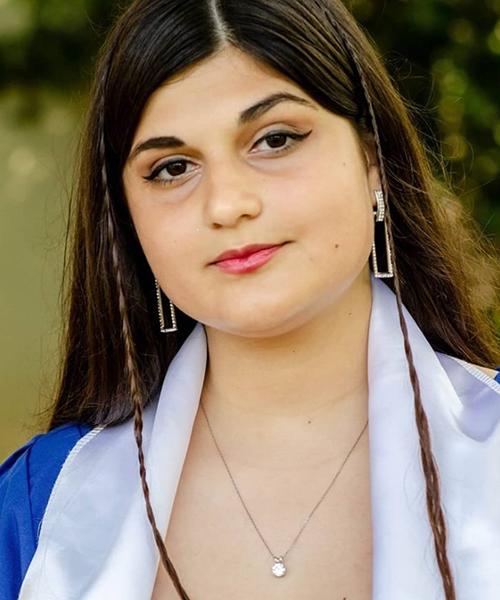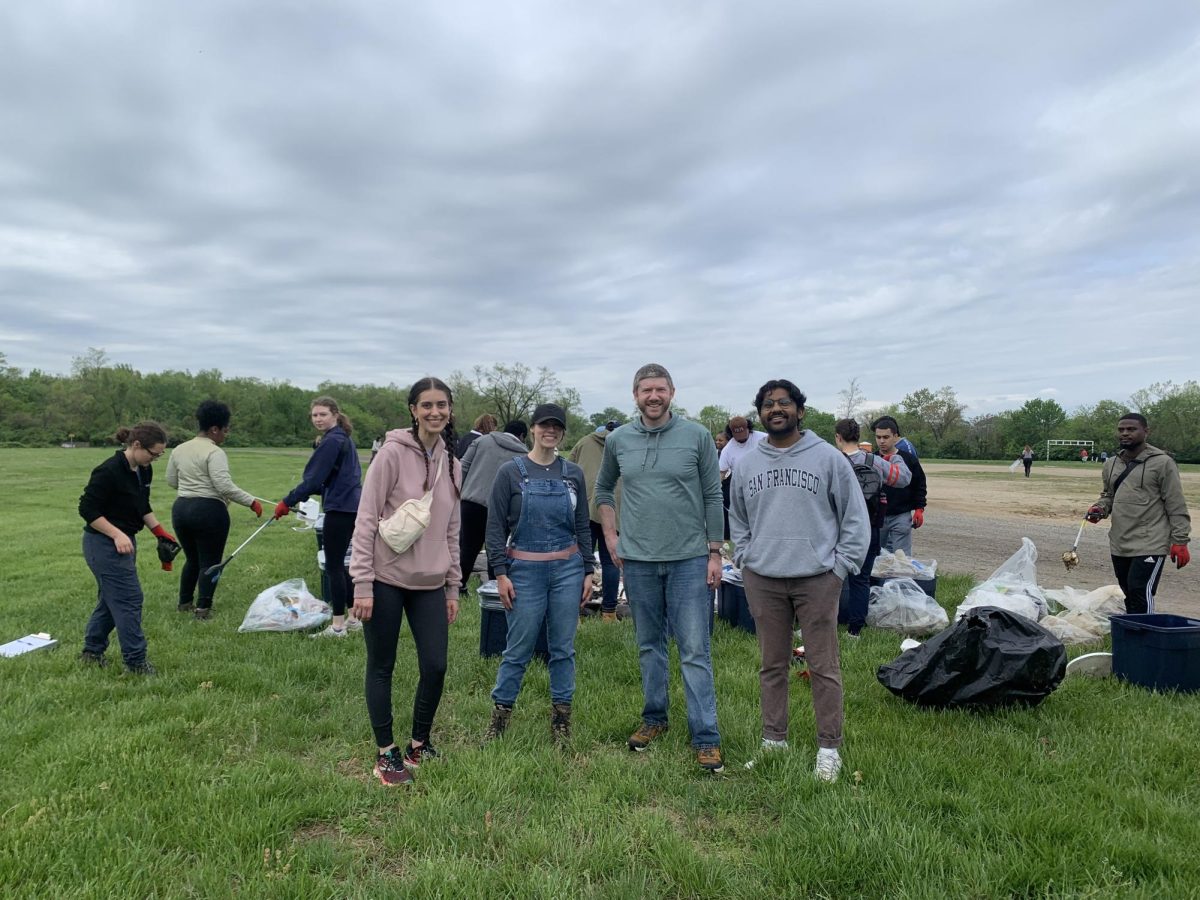Elene Chkhaidze (SFS ’25), a student at Georgetown University in Qatar (GU-Q), reported on religious dynamics in the wake of conflict in Cyprus to fulfill her Pulitzer Center Fellowship this summer.
The Pulitzer Center awarded Chkhaidze the Pulitzer Center Fellowship in March in conjunction with Georgetown’s Berkley Center for Religion, Peace and World Affairs, which selects one Georgetown student every year as a fellow. Fellows receive $3,000 grants to conduct in-depth reporting on religious aspects of domestic or international issues typically neglected by the mainstream media.
Chkhaidze centered her reporting on religion’s role in Cyprus following Turkey’s 1974 invasion of the island, which geographically split the country into two parts: the Greek-inhabited Republic of Cyprus and the Turkish Republic of Northern Cyprus, with the latter being a country that the United Nations (UN) and the international community do not recognize. The invasion subsequently divided Cyprus along the UN’s buffer line, which runs the length of the island, segregating the Greek and the Turkish Cypriots from each other and preventing a resolution.
Safwan Masri, the dean of GU-Q, congratulated Chkhaidze on her achievements, praising her ability to connect with people from diverse ethnic backgrounds.
“I have no doubt that her work will become a major guidepost signaling the importance of interfaith peace-building initiatives in the face of global trials and tribulations,” Masri’s office wrote to The Hoya.
Chkaidze said while the conflict is mainly an ethnic one, religion has nevertheless suffered among both Greek Orthodox and Turkish Muslim Cypriots.
“Before 1974, Greek Cypriots and Turk Cypriots were living throughout the island, and religious heritage was dispersed everywhere. But after the conflict, when the UN buffer zone split communities in half, Cypriots were forced to abandon their religious heritage,” Chkhaidze told The Hoya.
Chkhaidze said a series of Facebook posts inspired her choice of topic. Chkhaidze, who is a Georgian Christian, stumbled upon a Cypriot Greek Orthodox priest’s reflections on his experiences returning to his demolished village decades after fleeing war-torn Turkish Cyprus to the United States as a teenager. Icons were pilfered from the local church, and there were broken crosses on the tombstones of the cemetery where his family was buried.
Chkhaidze said the priest’s story touched her and fit the Pulitzer Center Fellowship’s mission.
“I saw a problem, and now I had a means of reporting on it,” Chkhaidze said.

Chkhaidze, who is majoring in international politics, said her project ties into her interest in the peace and conflict branch of international relations.
“This project interests me because it concerns international politics in terms of reconciliation — bringing two sides back to the negotiation table one at a time and trying to reach a compromise,” she said.
Chkhaidze examined how religion served as a framework for resolution, focusing on interviewing Cypriot non-governmental organizations (NGOs) to gauge their efforts on de-escalating ethnic tensions. One of these NGOs, the Religious Track of the Cyprus Peace Process, centers on religious leaders from both sides who discuss and implement steps toward peace.
Chkhaidze said the leaders came together in the NGO to record a video discussing the handling of information about both Greeks and Turks unaccounted for since the war. The religious leaders advocated for unity to accomplish this.
“In religious leaders’ speeches, there was a shared acknowledgment of the humanity of Cypriots and recognition of the profound pain experienced by grieving families who are still unaware of the fate of lost loved ones, regardless of whether the person was a Greek or Turkish Cypriot,” Chkhaidze said. “It symbolizes and signals development toward peace and the restoration of common humanity.”
Chkhaidze said that before traveling to Cyprus to do her fieldwork, she had the preconceived notion that religion was equally important to both Greek Orthodox and Turkish Muslim Cypriots, but she soon found out there was a disparity between the two groups.
“Greek Cypriots have been Christians for two thousand years and so their identity and religion are closely tied together. They were raised not to forget the loss of their territory and their religious heritage to the Turks,” Chkhaidze said. “But the Turkish Cypriots are more secular. They were raised with the message of ‘forget — now you have something better,’ since they consider Northern Cyprus their independent and autonomous region. They have something to look forward to.”
Chkhaidze found that her Greek Orthodox background helped facilitate her connections and interviews with Greek Cypriots. However, she used her Arabic minor to relate to Egyptian and Syrian religious leaders who oversaw the mosques she toured for her fieldwork.
“Even though it was my first time visiting mosques, it was surprisingly easy to connect with the imams who administered the mosques. When I spoke in Arabic, their faces immediately lit up and we instantly connected,” Chkhaidze said.
Akintunde Akinade, a professor of theology at GU-Q who taught Chkhaidze in his “Liberation Theologies in USA” class, said that she utilized her Greek Orthodox background to approach complex religious topics with a thoughtful perspective.
“Chkhaidze engaged deep theological issues with great discernment, profound understanding, and robust empathy,” Akinade wrote to The Hoya. “She brought her sound perspectives on Orthodox theology to bear on pertinent issues and themes in the course.”
Bradley Secker, a photojournalist, mentored Chkhaidze throughout the duration of her reporting. He said that her perspective of examining the religious aspects of the conflict shed a unique light on the conflict.
“Elene’s approach of covering the conflict and current situation through the eyes of religion were refreshing, and I believe she brought the political and personal into her reporting, under the umbrella of religion and religious beliefs,” Secker wrote to The Hoya.
Chkhaidze will be an exchange student at the university’s Main Campus next semester and hopes to intern at the Berkley Center, which will publish her Pulitzer Center Fellowship project. After working closely with NGOs and seeing how they help to promote the peace process, Chkhaidze said she is considering a career working at one.
“I was able to see how NGOs function and establish the peace process from the grassroots level,” Chkhaidze said. “It’s really inspiring to witness the small steps that can lay a path toward reconciliation.





















